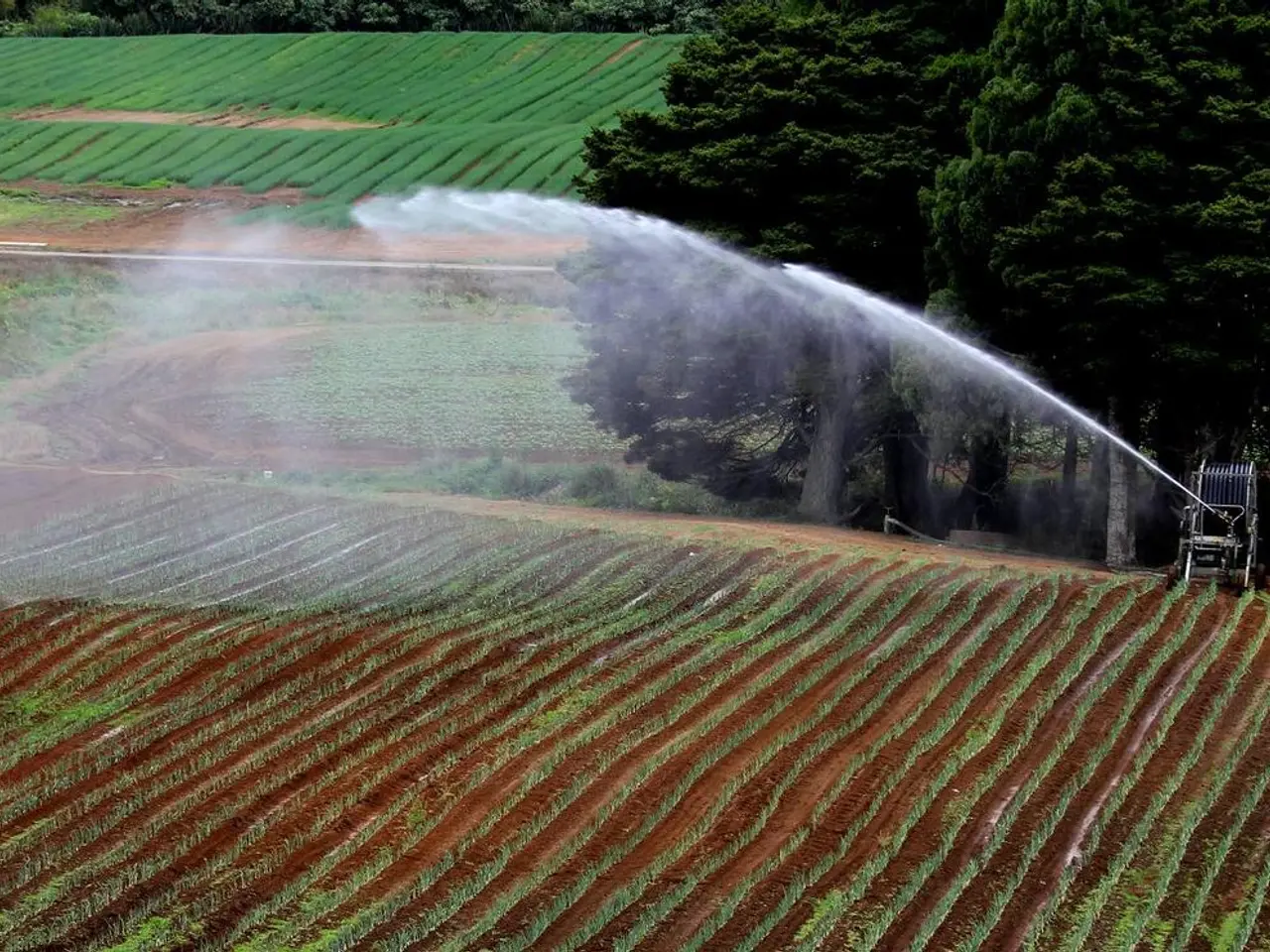Saving Water for Sustainable Agriculture: Eco-Friendly Farming Strategies
In the quest to support sustainable farming practices, water conservation has become a crucial focus. One effective approach is the use of drought-resistant crops, which not only help save water resources but also protect land for future generations.
By integrating drought-resistant crops into their farming routine, farmers can cultivate crops such as sorghum, millet, and quinoa, suitable for hot, dry conditions. These crops not only yield good amounts even in dry conditions but also help maintain soil structure, which holds moisture better.
Beyond drip irrigation and rainwater harvesting, several additional water conservation techniques can be employed. Precision irrigation, for instance, uses soil moisture sensors and satellite imagery to ensure water is applied only when necessary, reducing waste and runoff.
Biotechnology also plays a role in creating seeds that grow into drought-resistant crops, while absorbent soil additives can retain water in the soil, reducing the need for frequent irrigation.
Sustainable farming practices such as crop rotation, cover cropping, and reduced tillage are also essential. These methods enhance soil fertility, reduce pest cycles, and prevent soil erosion, thereby improving water infiltration and retention.
Buffer zones and vegetative strips, terracing and contour farming, mulching and organic matter, advanced data analytics, and nature-based solutions are other strategies that help preserve water resources and promote eco-friendly farming.
Setting up a rainwater collection system involves choosing a collection area, installing gutters and downspouts, selecting a storage tank, and connecting the system. Regular maintenance, including cleaning gutters and tanks, is crucial to keep everything working smoothly.
Drip irrigation, suitable for small gardens or rows, saves water by delivering water directly to roots. Soaker hoses evenly water flower beds or gardens and are easy to set up. Using a soil moisture meter provides a reading of the moisture level in the soil, helping farmers determine when to water.
Drip irrigation reduces water waste by watering the roots directly and minimizing evaporation. Drooping plants may indicate the need for water, while yellow leaves might suggest overwatering.
By using collected rainwater in farming and employing drought-resistant crops, farmers can not only preserve local water sources for future generations but also contribute to a more sustainable and eco-friendly world.
- Incorporating environmental science principles, such as the use of drought-resistant crops like sorghum, millet, and quinoa in farming, promotes sustainability by saving water resources and protecting the environment for future generations.
- To further conserve water in farming, science-based approaches like precision irrigation, using soil moisture sensors and satellite imagery, help reduce water waste and runoff.
- Home-and-garden practices, such as setting up a rainwater collection system and using drip irrigation, can aid in preserving local water sources for sustainability, while maintaining a lifestyle that contributes to a more eco-friendly world.




